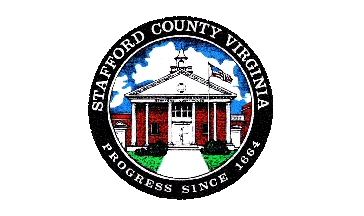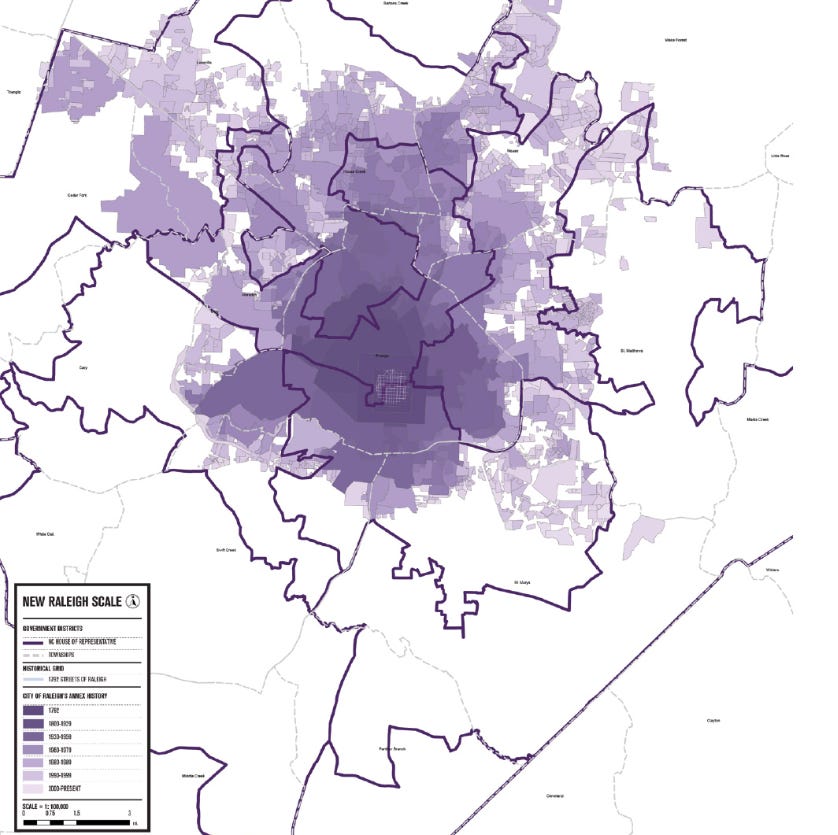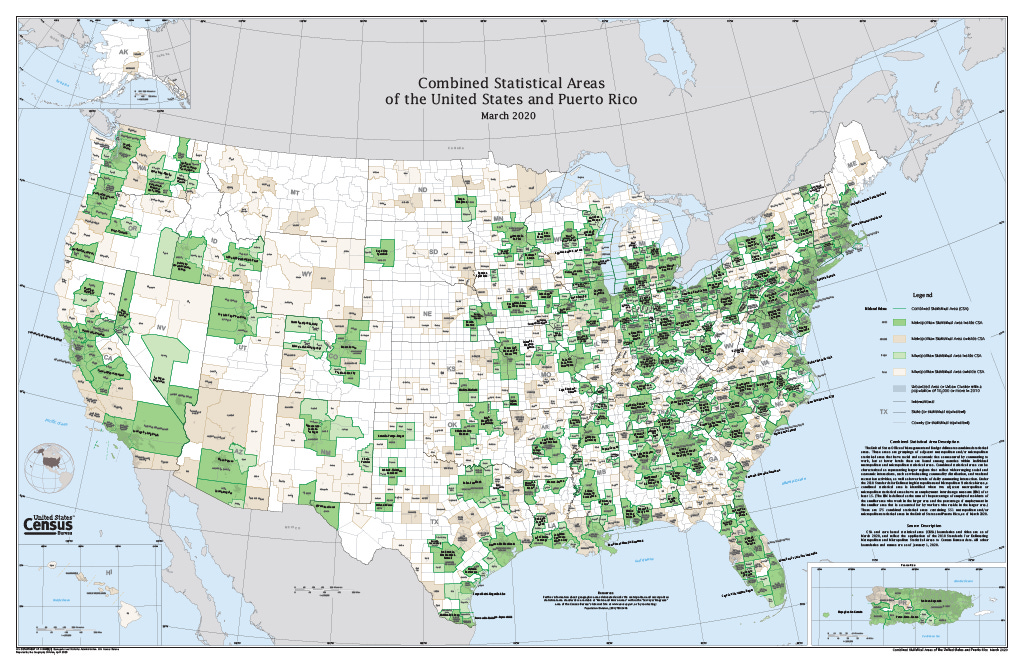FROM THE EDITOR: Regionalism Requires More Attention
As the region continues to grow, the importance of politicians and citizens understanding and wrestling with the issues that affect us all has arguably never been more important.
By Martin Davis
EDITOR-IN-CHIEF
Email Martin



Several years ago, I wrote a column celebrating the response of the local Fredericksburg community to a fire at Madonna House that displaced more than 40 seniors from their homes.
That piece omitted reference to the first responders from Stafford County, who also came that night in May to help contain the blaze and get people safely out of the building. A member of the Board of Supervisors in Stafford noted the omission, and over lunch at Tito’s Diner shortly after the article ran rightly criticized the omission.
The word used repeatedly in that conversation was “regionalism,” a loosely defined idea that adjoining localities should work together for the common good. Stafford’s involvement in that tragedy represented regionalism at its best.
But regionalism too often doesn’t have a happy ending.
The well-intentioned efforts to make regionalism a reality are often knee-capped by real-world politics and the understandable desire by officials to put the interests of their voters above all.
Consider some recent examples where regionalism has run into these difficult realities.
Data Centers — As the prospect of data centers in the Diamond (Caroline, Fredericksburg, King George, Spotsylvania, and Stafford) grew wings, King George County bucked the region and went its own way.
River Crossing — The current debate over the river crossing is simply a continuation of a long-running battle to build a bridge across the river west of I-95. Over the past few decades, all three jurisdictions have had a hand in sinking proposals.
Homelessness — The city of Fredericksburg has been leading the charge on the homeless front in recent years. Spotsylvania now finds itself in a situation of trying to address a problem it has too long avoided, having rebuffed opportunities to work with groups in the city on the issue.
“Regionalism is difficult,” Ian Ollis of the Fredericksburg Area Metropolitan Planning Organization (FAMPO) told the Advance.
That’s because when multiple localities are around a table discussing a regional solution, each naturally wants the best possible deal for its citizens. There’s little motivation to accept something that doesn’t benefit one’s constituents. After all, the next election is always just around the corner.
But the challenges facing regionalism’s effectiveness go beyond mundane politics.
In Virginia, more so than in most other states, counties hold a tremendous amount of sway.
Fredericksburg is as much as it’s ever going to be in terms of land area, as annexing land in Virginia is a difficult proposition. Consequently, the surrounding counties have surged in growth as Fredericksburg has stagnated. A similar situation has occurred with the city of Richmond. Its “footprint is quite small relative to the urban area,” Ollis notes. “If the counties don’t want something the city wants,” it’s difficult to get them to go along.
Compare this with neighboring states like North Carolina where cities routinely expand into surrounding counties as the need arises. (See the growth of Raleigh, North Carolina, below from the late 18th century to now.)
And in several places around the globe, counties — or their equivalent — are even weaker than in the U.S.
“In South Africa, we built megacities and got rid of counties,” Ollis said. “London has one megacity, and smaller burrows. But it exists within the greater London megacity.”
The relative weakness of Virginia cities and the strength of Virginia counties creates significant obstacles to regionalism’s effectiveness. These challenges, however, do not mean regionalism cannot succeed.
A Unifying Force
There are two organizations in our region whose job it is to facilitate regional solutions. The aforementioned FAMPO, and the organization with which it’s loosely associated, the George Washington Regional Commission.
In terms of raw power, neither organization has much muscle to flex. Rather, they depend upon convening people and facilitating discussions that help local leaders discover the best way forward for the region as a whole.
(Learn more about GWRC in the Advance’s interview with its leader, Chip Boyles; learn more about FAMPO by tuning in to Ollis’ recent conversation with the New Dominion Podcast.)
These two groups on their own, however, can only do so much.
For regionalism to be successful, it’s incumbent upon everyday citizens to better understand the important role regionalism plays in our economic and social future, and begin forcing a conversation about what unites this region.
These conversations do not need to start from scratch. Indeed, there is fertile ground in which to plant such discussions.
To begin, our infrastructures are connected in important ways. The obvious are the roads we travel on, which most every citizen uses. Their current congested state is a testament to what happens when localities don’t cooperate.
There are agreements between the city and the counties to assist with school buses. There are also agreements to support one another in the event of difficulties with water distribution. And then there are the first-responder agreements previously mentioned.
There are also success stories. The Central Rappahannock Regional Library is a model of regional practice; it has become the cultural lynchpin that unites users throughout the area.
And then there’s Germanna Community College, which is arguably the most important educational economic driver in the region.
Still, there’s a lot of work to do.
Though the census bureau sees Fredericksburg, Spotsylvania, and Stafford as part of a Metropolitan Statistical Area (Caroline and King George are not), the region does not hang together as a coherent whole as well as do some other MSAs.
There are a number of reasons for this. The high percentage of commuters means a significant proportion of our population spends more time outside our area than inside, making it difficult for them to appreciate the regional work that needs to be done.
Further, while Spotsylvania and Stafford have realized significant population growth, political power continues to rest to a large degree in the hands of people attracted to — and committed to — the counties’ rural appeals.
How to change this?
This election season, voters should ask local political candidates to address the two most-pressing regional issues we face — homelessness and affordable housing. Do they see this as an issue at all? As a regional issue? How would they address each?
Local political parties can also get involved with educating citizens about the importance of finding regional approaches to local problems. When people understand that issues in Stafford affect Fredericksburg and Spotsylvania, they’re more likely to cooperate. We are seeing that now in Spotsylvania with the homeless issue. Everyone is feeling it with the affordable housing issue.
Part of educating citizen also requires helping residents of Spotsylvania and Stafford accept what a substantial number of people in each county choose not to face — both counties are urban areas. And they face very urban problems:
Increasing racial diversity
Growing income gaps
Rising numbers of homeless
The need to find new revenue streams to provide services or cut services
A changing business environment
Increasing food insecurity
Declining access to health care — and in particular maternal care
Fredericksburg is not a quiet, idyllic little city, and neither Spotsylvania nor Stafford are rural wonderlands. Our three localities have more in common with Arlington and Alexandria, than with the Northern Neck or Abingdon.
There are factions in our communities who resist this idea, but it’s a reality by most every measurable indicator.
Does it mean we are to become Arlington and Alexandria? Of course not.
But to balance growth with the desire to retain what makes our region distinctive will require a level of political maturity on behalf of elected leaders and citizens that helps all parties appreciate the importance of regionalism.
And that can only occur with open communication that informs, questions, and encourages.
Local Obituaries
To view local obituaries or to send a note to family and loved ones, please visit the link that follows.
Support Award-winning, Locally Focused Journalism
The FXBG Advance cuts through the talking points to deliver both incisive and informative news about the issues, people, and organizations that daily affect your life. And we do it in a multi-partisan format that has no equal in this region. Over the past year, our reporting was:
First to break the story of Stafford Board of Supervisors dismissing a citizen library board member for “misconduct,” without informing the citizen or explaining what the person allegedly did wrong.
First to explain falling water levels in the Rappahannock Canal.
First to detail controversial traffic numbers submitted by Stafford staff on the Buc-ee’s project
Our media group also offers the most-extensive election coverage in the region and regular columnists like:
And our newsroom is led by the most-experienced and most-awarded journalists in the region — Adele Uphaus (Managing Editor and multiple VPA award-winner) and Martin Davis (Editor-in-Chief, 2022 Opinion Writer of the Year in Virginia and more than 25 years reporting from around the country and the world).
For just $8 a month, you can help support top-flight journalism that puts people over policies.
Your contributions 100% support our journalists.
Help us as we continue to grow!
This article is published under Creative Commons license CC BY-NC-ND. It can be distributed for noncommercial purposes and must include the following: “Published with permission by FXBG Advance.”















Many people are missing the primary reason of housing inaffordability- INVESTORS! Since the 2008 mortgage fiasco, banks conducted short sales and administered foreclosure sales and as a result, investors who were nervous about being in the stock market, bought them. An entire industry has since been going strong whereby the investors buy up fixer-uppers with cash. These homes used to be purchased by first homeowners who were able to build up sweat equity, but now, these first time homeowners cannot compete with cash offers and are relegated to being renters for years to come. LLCs are the new homeowners and until this changes, housing shortages and up unaffordability will continue.